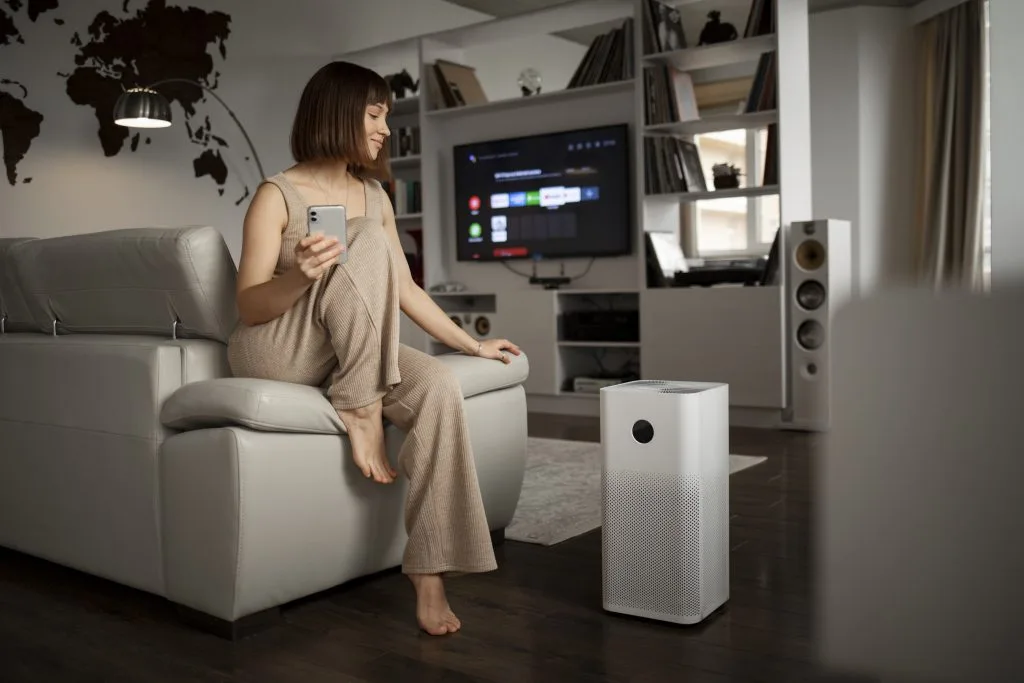At a glance
- Home automation, like smart lighting and energy-saving appliances, contributes to reduced energy spending, making homes more environmentally friendly and economically efficient.
- Economic advantages include reduced utility bills through the collective efficiency of smart appliances and lighting, and positioning home automation as a strategic investment with long-term financial benefits.
- Reduced energy consumption contributes to environmental responsibility, shaping a lifestyle that combines comfort, efficiency, and sustainability.
In the rapidly advancing landscape of modern living, integrating technology into our homes has become more than just a convenience – it’s a pathway to sustainability and cost savings. One of the key players in this arena is home automation, a technological marvel that holds the promise of reduced energy spending.
In this article, we’ll explore the various facets of home automation, uncovering how it contributes to economic benefits, and compare residential energy plans, making homes more environmentally friendly and economically efficient.
Home Automation Can Help Enhance Energy Efficiency
At its core, home automation is about infusing intelligence into our living spaces. It involves deploying smart technologies to automate and control various aspects of a household. This could range from lighting and appliances to thermostats and security systems. The primary aim is to enhance efficiency and convenience and, in the context of this article, reduce energy consumption.
Smart Lighting: Shaping the Future of Illumination
Traditional lighting systems have been a staple in homes for decades, but they come at a cost – both economically and environmentally. But smart home energy options, like in the case of lighting, are like intelligent systems that allow users to control lights remotely through smartphones and incorporate features like automatic brightness adjustment based on ambient lighting conditions.
While the initial investment in smart bulbs might be higher, the long-term benefits are compelling. A potential reduction of up to 50% in lighting costs can be achieved, making them a smart choice for homeowners looking to cut down on their electricity bills while embracing modern technology.
Smart Appliances: Beyond Basic Functionality
Our homes are filled with appliances that are now getting smarter. Beyond their basic functions, modern appliances are equipped with the ability to adjust their electricity usage throughout the day. Compare residential energy plans: Imagine a dishwasher that optimises its operation during off-peak hours or an oven that intelligently manages electricity consumption.
These innovations contribute to significant energy savings and align with a more sustainable and economical lifestyle. The impact is profound, especially when considering hot water heating, which constitutes a substantial portion of home energy use. Smart appliances that shift their operation to off-peak hours can lead to tangible savings on electricity bills, giving homeowners a compelling reason to invest in these technologically advanced solutions.
Smart Home Watering Systems: Nurturing Efficiency
Gone are the days of indiscriminate lawn watering with outdated sprinkler systems. Enter intelligent watering systems, a technological marvel that responds to real-time weather conditions. Equipped with moisture sensors, these systems can detect when your lawn needs watering, preventing unnecessary water usage and contributing to water conservation. Moreover, controlling your sprinkler system remotely via a smartphone adds convenience and efficiency.
No more wasting water on rainy days – a simple tap on your phone ensures that your lawn gets watered when needed, aligning with a more environmentally conscious and cost-effective approach.
Smart Thermostats and Air Conditioners: Mastering Comfort and Savings
Heating and cooling costs are notorious for inflating electricity bills, and traditional systems often need to catch up in efficiency. Smart thermostats, empowered with Wi-Fi capabilities, step in as a solution. These devices learn from past usage patterns, automatically adjusting temperature settings to optimise energy consumption.
The real game-changer is the ability to control your home’s temperature settings anywhere in the world using a mobile device. Whether at work or on vacation, you can ensure your home is at an optimal temperature, reducing the need for continuous heating or cooling. The result? Comfortable living and substantial savings on energy costs and bills due to the elimination of unnecessary energy consumption.
The Holistic Impact: How Home Automation Transforms Energy Monitoring and Enhanced Energy Savings
Integrating smart lighting, home appliances, watering systems, and thermostats creates a holistic approach to reducing energy spending. This isn’t just about adopting the latest gadgets; it’s about transforming how we interact with our homes. Home automation empowers users by providing real-time energy monitoring and full control over their home’s energy usage, fostering a conscious approach to consumption and helping optimise energy usage and maximise energy savings.
Smart energy management systems create an energy-efficient home as automation systems can reduce energy consumption and lower your carbon footprint along with lower energy bills as you save energy.
The Economic Advantages of Reduced Utility Bills
The allure of home automation extends beyond the convenience of controlling your home through your smartphone. At its core, it’s about making intelligent choices that translate into tangible economic benefits. The reduction in lighting costs, achieved through the adoption of smart bulbs, represents just one facet of the overall economic advantages.
Consider the significant savings garnered from the collective efficiency of smart appliances. By automatically adjusting their electricity usage to off-peak hours, these devices substantially decrease energy bills. The impact on the household budget becomes even more evident when we factor in the long-term savings from reduced heating and cooling costs facilitated by smart thermostats.
Home Automation as a Strategic Investment
Home automation isn’t just a trend; it’s a strategic investment that pays dividends over time. While the upfront costs for a home automation system may seem daunting, the potential for long-term savings makes it a sound financial decision. The initial investment in smart technologies is a forward-thinking move that aligns with the growing need for sustainability and efficiency. Moreover, the real estate landscape is evolving, with homebuyers increasingly valuing energy-efficient features.
Homes equipped with state-of-the-art smart home solutions and automation systems often boast increased resale value. So, beyond the immediate savings on energy bills, the benefits of home security, and the overall convenience, homeowners stand to benefit financially when it comes time to sell their property.
A Greener Future Through Home Automation
Reducing energy consumption isn’t just a matter of financial prudence; it contributes to a more sustainable lifestyle. By adopting technologies prioritising efficiency, homeowners become active participants in the broader movement towards environmental responsibility. The collective impact of individual choices in home automation reverberates on a larger scale. The key advantages of home automation and a home energy management system are insights into energy consumption.
Homeowners can control their energy usage, significantly reduce energy waste, and reduce energy consumption, which translates to a decreased demand for power, contributing to the overall sustainability of our energy infrastructure. It’s a small yet impactful step towards mitigating the environmental impact of our daily lives.
In conclusion, home automation stands at the intersection of technological innovation and sustainability, offering homeowners a glimpse of active participation in the future of living. The advantages extend beyond the novelty of remote control and automated functions; they manifest in reduced energy bills, increased property value, and, most importantly, a conscientious approach to resource consumption.
Adopting home automation becomes a defining choice as we move into an era where technology plays an increasingly integral role in our daily lives. It’s more than a series of gadgets – it’s a commitment to a lifestyle that combines comfort, efficiency, and environmental responsibility.
So, to homeowners contemplating integrating intelligent technologies into their living spaces, the message is clear: the investment isn’t just in gadgets; it’s in a future where homes are not just smart but sustainably intelligent. Need help comparing energy providers in your area? Check out our free tool.
-
Comprehensive insights into the energy bill relief fund in Australia
5 May 2024
Energy
-
Find the best electricity deal for electric vehicle charging
28 April 2024
Gas & Electricity
-
Understanding energy demand charges: A guide for business owners
25 April 2024
Energy


